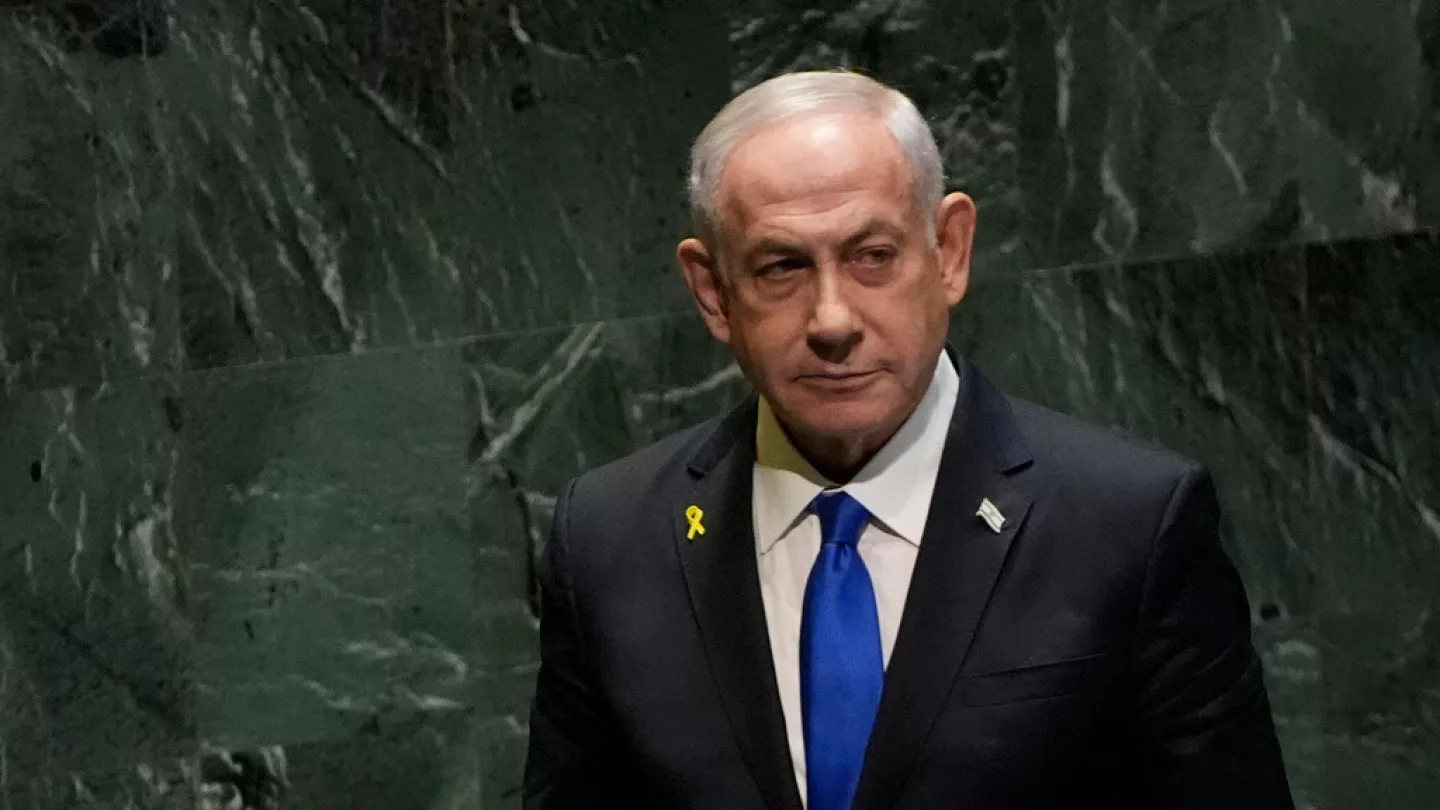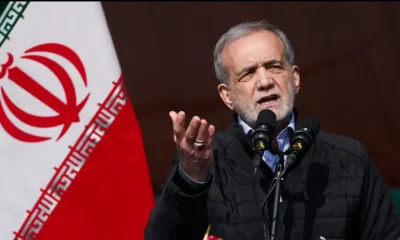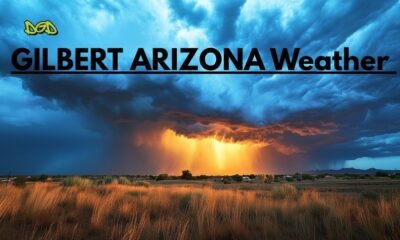Politics & Government
Netanyahu silences critics overnight with bold Iran strike but will it really save his sinking career?
Israel’s longest-serving PM gambled big with Operation Rising Lion — now his foes are cheering him on, but for how long?

Benjamin Netanyahu Israel’s embattled and longest-serving prime minister — has pulled off what some are calling his “Churchill moment” by unleashing a high-stakes military campaign against Iran, Israel’s most feared enemy. Overnight, his crumbling coalition is united, the political protests have vanished, and his legal troubles are buried deep in tomorrow’s pages. But is this political revival bulletproof or just a temporary breather before another storm?
Just a day before Operation Rising Lion was greenlit, Netanyahu’s fragile government barely dodged a confidence vote, with ultra-Orthodox parties threatening to walk out over the thorny military draft issue. Then, seemingly in a heartbeat, Israel’s jets roared into Iranian skies — and “the cards are in his hands,” an Israeli official declared triumphantly.
Protests gone, trial paused, opposition muzzled — Bibi, as he’s known at home, has neutralised his biggest headaches without a single parliamentary speech. For a man who’s spent years warning the world about Tehran’s ambitions — famously waving that cartoonish bomb drawing at the UN back in 2012 — this operation feels like the ultimate “I told you so.”
“This time, we have unity almost all over the Knesset, except from the Arab parties, and we have unity in the people,” an insider revealed, underlining just how deeply the Iranian threat binds Israel’s fractious politics together.
For nearly two years, Israel has fought a messy, multi-front war: Hamas battered, Hezbollah bruised, Houthi missiles swatted down. Now, with its backyard mostly quiet, Netanyahu seized the moment to strike Iran directly — a move long whispered about but never dared in full daylight.
Yet not everyone is convinced this military win will magically rescue Bibi’s bruised polls. Yohanan Plesner, head of the Israeli Democracy Institute, says the Iranian threat is a rare topic where left and right nod in agreement — meaning few fresh votes for the PM.
“There’s a tremendous consensus around stopping Iran from going nuclear,” Plesner explained. “It’s not an ideological fight.”
Plus, the Gaza war still festers with no clear exit plan, and adding Iran to Israel’s battlefield math could stretch resources thin and test public patience if victory drags on.
Former US Ambassador to Israel Dan Shapiro points out the risks Bibi has chosen to ignore in his twilight years: “At his age, he has much less of a political career left to lose… so it’s easier to throw caution to the wind for a career-defining goal.”
For now, Israel’s Churchill is back on top. But history shows wars can crown heroes — or break them. If Netanyahu’s gamble backfires, his enemies may not stay silent for long.

World
Donald Trump’s ‘Big, Beautiful Bill’ Just Changed America Forever — But at What Cost
Donald Trump’s ‘Big, Beautiful Bill’ Just Changed America Forever — But at What Cost. The former president’s landmark legislation reshapes immigration, climate, and welfare—ushering in a new era of bold promises and deep divisions.

In a moment hailed by supporters and condemned by critics, Donald Trump has signed into law what he called his “big, beautiful bill” — a legislative package that doesn’t just check off his long-standing Make America Great Again (MAGA) pledges, but rewrites America’s future in dramatic and controversial ways.
The legislation touches on nearly every major political flashpoint — from immigration crackdowns to energy reforms and tax policies — sparking fierce debate about who truly benefits from this sweeping overhaul of domestic policy.
As Trump celebrated the bill’s passage at a rally in Iowa, dancing in front of a giant American flag, the symbolism was as loud as the politics: this wasn’t just about passing a law — it was about reshaping a nation.
Here are the three biggest ways Trump’s America 2.0 is already taking shape.
1. A Land of Less Hope: America’s Immigration Overhaul
For decades, the United States was seen as a beacon for migrants seeking better lives. With an estimated 8 million undocumented immigrants in the US workforce — many of them contributing to industries like agriculture and construction — prior administrations had opted for tolerance and sanctuary policies.
But Trump’s legislation changes all of that.
It injects more than $100 billion into enforcement, doubling detention center capacity, reviving construction on the Mexican border wall, and deploying thousands of new border agents. The era of sanctuary cities is effectively over.
In an unprecedented move, the bill introduces steep financial barriers to legal migration. Asylum seekers will now face minimum fees of $100 just to apply, while those seeking humanitarian protection must pay $1,000. Even work permits will cost $550 or more.
These measures reflect a brutal calculation: make migration harder, less appealing, and more expensive. Yet, there’s a twist. Trump has hinted at a potential exception for undocumented farm workers — if their employers vouch for them, some may stay. It’s a nod to practicality in an otherwise hardline policy shift.
Critics argue the bill strips the U.S. of its historic identity as a “land of hope.” Supporters, however, see it as a long-overdue tightening of a broken system.
2. Fossil Fuels Over the Future: Climate Takes a Backseat
Environmentalists may breathe a sigh of relief that the bill didn’t include a new tax on solar and wind projects, but they’re not celebrating.
The bill slashes clean energy tax credits — key incentives for electric vehicles, solar energy, and eco-friendly homes introduced under former President Joe Biden. Instead, Trump is doubling down on his energy mantra: “Drill, baby, drill.”
The new law simplifies leasing public lands for oil and gas drilling, cuts royalty payments for fossil fuel producers, and lifts restrictions on mining operations. In other words, coal is back — and so is the pollution.
According to a Princeton University study, the bill could add 470 million tonnes of greenhouse gas emissions annually by 2035 — more than Australia’s entire yearly output.
Donald Trump has long been vocal in his opposition to renewables. He’s called solar farms “ugly as hell” and wind turbines “bird-killers” that “destroy the place.” Now, those sentiments are no longer rhetoric — they’re national policy.
3. Widening the Wealth Gap: Tax Cuts, Medicaid Slashes, and Social Strain
At the heart of Trump’s bill is a tax reform package that he’s calling the “largest tax cut in U.S. history.” But while it keeps his 2017 tax cuts permanent, most of the benefits tilt toward the wealthiest Americans.
The bill is projected to cost $4.5 trillion over ten years. To offset this, Trump’s administration is pulling the plug on parts of the country’s already-thin social safety net.
About 12 million Americans are expected to lose Medicaid coverage, according to the Congressional Budget Office, saving the government $1 trillion. Additionally, funding for food stamp programs — lifelines for low-income families — will be slashed.
In return, there are minor benefits: tip-based workers will no longer be taxed on their tips, certain senior citizens and parents will receive tax credits, and — in a quirky twist — Alaskan whaling captains will get special tax exemptions, thanks to a Republican holdout senator from the state.
Still, the overall impact? Richer Americans gain, and the poor are told to work harder or get less. As one analyst put it, “Trump’s bill cements a future where the rich get richer — and the rest fend for themselves.”
Musk’s Fury and Republican Fallout
Interestingly, Elon Musk, once seen as aligned with Trump’s free-market ideology, took to X (formerly Twitter) to unleash a storm of criticism. “You’ve created a monster,” read one of his cryptic posts, referencing the economic burden on innovation and clean tech.
The tension between Trump and his billionaire backers could grow — but for now, Trump is focused on legacy. With one stroke of a pen, he may have done more to remake America than any president since Ronald Reagan.
But as the dust settles, the question lingers: at what cost?
Politics
She Says ‘We Got Smashed’… — Sussan Ley Unveils Bold Plan to Rebuild Liberal Party From Ground Up
Australia’s first female “Sussan Ley” federal Liberal leader breaks tradition, acknowledges defeat, and demands sweeping reforms to revive party relevance by 2028.

In a striking moment of political honesty and recalibration, Sussan Ley—newly appointed leader of the Liberal Party of Australia—stood before the National Press Club and didn’t mince words. “We got smashed,” she admitted, referencing the party’s crushing defeat in the federal election.
But Ley isn’t dwelling on the past—she’s signaling a seismic shift in tone, leadership, and direction.
This was no ordinary press club speech. It was the first such address by a Liberal leader in years, following a conspicuous absence under Peter Dutton. Opening with an acknowledgement of country and a vow to honour public service, Ley made clear: “The old way is over.
Let me send the clearest possible message: We need to do better, recruit better, retain better and support better, she declared, referring to the party’s underwhelming representation of women in Parliament—an issue long simmering beneath the surface.
Ley said she is “agnostic” about how the gender balance is achieved—whether through quotas or other measures—but she’s a “zealot” for ensuring it does happen. Her warning to underperforming state divisions was blunt: improve or face consequences.
Energy, Emissions and a New Coalition Compass
One of the most controversial topics now gripping the Coalition is climate policy, and Sussan Ley is not shying away from the storm.
To tackle the party’s fractured approach to net zero emissions, Ley announced the formation of a working group led by Dan Tehan, alongside figures like Ted O’Brien, Susan McDonald, Angie Bell, Alex Hawke, Dean Smith, and Andrew Willcox.
Their mission? To forge a policy that supports a “stable, affordable energy grid” while ensuring Australia contributes to global emission reduction goals.
The group’s findings will report directly to Ley and Nationals leader David Littleproud. The pressure is high—especially given public fractures between the Liberals and Nationals on nuclear power and climate targets.
A New Tone: Modern Australia, Modern Liberalism
Ley’s tone throughout was both personal and political. Drawing from her own past at the Australian Tax Office, she emphasized her respect for the public service—a subtle rejection of the Coalition’s failed promise to slash public sector jobs during the campaign.
That is part of my story too, she said. Economic management must be responsible, practical and always focused on delivering value to the taxpayer.
Another stark contrast with past leadership: Ley’s embrace of inclusivity and modernity. From acknowledging First Nations peoples to directly addressing the failures of past campaigns, she’s signalling a new era.
Policy Priorities: Defence, Safety, and Tech Accountability
While much of the party’s policy platform is under review, Ley made clear some immediate priorities:
- Defence spending must rise—potentially to 3.5% of GDP—aligning with U.S. expectations and tackling rising global instability.
- Family violence and child safety are top-tier concerns. Ley delivered an emotional plea: “I understand the pain that comes with coercion and control because I have felt that pain too.”
She promised not to let the issue “fall down the list of priorities.” - On technology, she blasted big tech companies for “peddling addictive technology” to children and warned about the growing threats posed by deepfakes and AI tools.
Looking to 2028: “Judge Me by the Next Election, Not Today’s Headlines”
Perhaps the most telling moment of her address came when Ley asked to be judged not by polls, nor media narratives, but by the outcome of the next federal election in 2028.
With her leadership having only narrowly edged out a challenge from Angus Taylor, Ley’s long-term vision may be the party’s best shot at a full-scale comeback.
As we seek to regain trust with all voters… the task before me is to lead a Liberal Party that respects, reflects and represents modern Australia, she concluded.
Whether her candid tone and structural reforms will resonate across the party—and more importantly, with the Australian electorate—remains to be seen. But one thing is clear: the old Liberal script has been tossed. And Sussan Ley is writing a new one.
-

 World News4 days ago
World News4 days ago1-Iran Issues Dire Warning to Israel and Defies Trump on Nukes: “We’re Ready to Strike Deep Inside”
-

 Weather4 days ago
Weather4 days agoGilbert Weather Forecast Turns Volatile Heat Advisory and Storm Watch Issued
-

 Sports7 days ago
Sports7 days agoRicky Ponting once said “I learned from the best” but who were Australia’s 5 greatest cricketers ever?
-

 Entertainment4 days ago
Entertainment4 days agoOzzy Osbourne dies at 76 after final concert with Black Sabbath fans say It finally caught up with him…
-

 Cricket1 week ago
Cricket1 week agoTop 5 Fastest Bowlers in Cricket History Who Delivered Blazing Thunderbolts that Shocked the World
-

 Entertainment1 week ago
Entertainment1 week agoColdplay CEO Scandal Shocks Tech World as Viral Jumbotron Clip Forces Astronomer Chief on Leave and Sparks 7 Unbelievable Reactions
-

 Sports1 week ago
Sports1 week agoAndre Russell Drops Bombshell Hint at Retirement from International Cricket — What’s Next for the T20 Fearless Titan?
-

 Entertainment4 days ago
Entertainment4 days ago7 Powerful Lines from Jessica Simpson’s Fade Song That Reveal the Truth Behind Her Breakup














